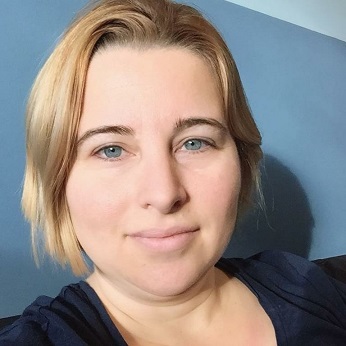May 31, 2022
by Patricia Tomasi
 A new study published in the Journal of Child Psychiatry and Human Development looked at the association between time spent playing and child mental health.
A new study published in the Journal of Child Psychiatry and Human Development looked at the association between time spent playing and child mental health.
“In January 2021, we published a paper explaining why we thought adventurous play might help to prevent anxiety in children,” study author Helen F. Dodd told us. “We explained how, when children play adventurously, they have opportunities to learn about uncertainty, coping and physiological arousal (heart beating fast, butterflies in your tummy etc.). These learning opportunities should target some of the risk factors that we know exist for child anxiety.”
In this study, researchers wanted to examine for the first time, whether children who have more opportunities for adventurous play do have lower anxiety, as we would expect based on their theory.
“We designed the research to provide an initial evaluation of our theory about adventurous play helping to prevent anxiety,” Dodd told us. “The research doesn’t fully test out the theory because we measures play and anxiety at the same time so it is possible that anxiety affects how children play rather than vice versa.”
According to the Centers for Disease Control and Prevention, anxiety in children is the second most commonly diagnosed mental health disorders at 9.4 per cent in the U.S. which equates to approximately 5.8 million children aged three to 17 during the period of 2016 to 2019. Attention Deficit Hyperactivity Disorder (ADHD) was the most commonly diagnosed mental health disorder in children at 9.8 per cent which equates to approximately 6 million children. Anxiety was followed by behavior problems at 8.9 per cent which is approximately 5.5 million children, and depression at 4.4 per cent, approximately 2.7 million children.
“I have been studying child anxiety for many years and became interested in adventurous play when I became a parent myself and realized that as a parent you’re constantly making decisions about what to allow your child to do, what to encourage, what to discourage etc,” Dodd told us. “When there are risks involved, as there often are with adventurous play, the instinct is often to protect children and that got me thinking about what happens if children are kept too safe and not given chance to play adventurously. I then read around the topic, particularly work by Dr. Tim Gill, Dr. Mariana Brussoni, and Dr. Ellen Sandseter.”
To test their theory, researchers conducted two survey studies, one with a nationally representative sample of almost 2000 parents living in Britain and one with a sample of parents from Northern Ireland. All parents had a child aged between five and 11 and they asked them about their child’s play and mental health.
“We found robust associations between the time that children spend playing adventurously and their internalizing symptoms, which means anxiety and depression symptoms,” Dodd told us. “We also found that children who spent more time playing adventurously were happier during the first COVID-19 lockdown. The effects were small but consistent even after we took into account a wide range of demographic factors and parent mental health. In the larger study we found that the effects were stronger for children growing up in low income households.”
The results support what researchers had hypothesized based on their theory.
“I was surprised they were so consistent across the two samples and remained even after controlling for lots of other factors that would influence both play and mental health,” Dodd told us. “The results highlight for me the importance of adventurous play for children and the need for us to protect spaces for children to play in this way, especially children from lower income families.”
About the Author
 Patricia Tomasi
Patricia Tomasi
Patricia Tomasi is a mom, maternal mental health advocate, journalist, and speaker. She writes regularly for the Huffington Post Canada, focusing primarily on maternal mental health after suffering from severe postpartum anxiety twice. You can find her Huffington Post biography here. Patricia is also a Patient Expert Advisor for the North American-based, Maternal Mental Health Research Collective and is the founder of the online peer support group - Facebook Postpartum Depression & Anxiety Support Group - with over 1500 members worldwide. Blog: www.patriciatomasiblog.wordpress.com
Email: tomasi.patricia@gmail.com